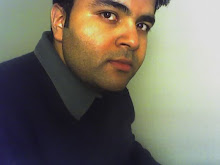The Celebrities
We all love some celebrity. It could be our favorite actor, actress, writer, or anybody. Most of us have also had the opportunity to meet one of our favorite celebrities in person. I once had such a chance too. I met with a favorite musician of mine. It was awesome. I was so enthralled to meet him. On the contrary, he didn't know any of the fans surrounding him. He was giving us his stock smile and bandied words with us. That meeting got me thinking.
I started to think about what makes somebody a celebrity? After all, they are only human beings. What makes them so special? I came up with a very simple model. I am calling it, 'One-Way Influence'. One-way influencing means that when we watch people on the TV, or in the movies, our psychology falsely assumes that we know them. The next step to this knowing is the formation of a trust and bonding. Since this trust is based on false assumptions, it surprises us when we read about the same people in tabloids. The interesting thing to note here is that the other person does not know anything about us. He is not bonding with us. It is only happening in one direction. Slowly, the person on the screen becomes very dear to us.
In order to test my theory, I began to think of an experiment. I thought that if I were to stand up in front of a group of people and speak, a 'very minor' case of one-way influencing will occur. So I went to a party where I hardly knew anyone. It was a musical evening. A small band was playing and a couple hundred people were listening. I went up to the host of the show and asked them if they could let me tell a few jokes. Of course, I had the hidden agenda of making friends, but at the same time, I wanted to test my theory. They kindly gave me a few minutes. I went up to the stage, and did some stand-up comedy. People laughed and apparently liked my jokes (phew!!).
When I finished my jokes and walked off the stage, a group of people invited me and started talking. It was like an instant friendship. I didn't have to introduce myself at all. One-way influencing had actually worked! My appearance at the stage had subconsciously made me a friend of the audience.
Since then, I have used the same theory over and over. Many a times, I don't get the same response as in that party. For example, in one of my classes that I taught, my students were adament about not expressing their feelings. They thought I would count it against them. But other than that, one-way influencing has always worked for me.
You'd ask, where does this theory apply? I can give you two applicable areas. One is the relationship between politicians and common people. Due to one-way influencing, people tend to believe in the eloquent politicians, even though they may not know them at a personal level. How much were you shocked to hear Clinton-Lewinsky story? Another case is online dating. One can say that online dating is interactive and not one-way. In my opinion, online dating is very one-dimensional. We do get glimpses of the other person's attributes, but the majority of the personna of the other person is created by our own mind.
If you meet a gregarious person, observe their ways. You will see that most extroverts keep talking. Their talk breaks the ice and paves the road for further contact. I wanted to share this with my friends who have a fear of public-speaking, are shy, or have difficulty making friends. Try one-way influencing. If your audience does not have any inhibitions, you'll be surprised to see how it works.


0 Comments:
Post a Comment
<< Home